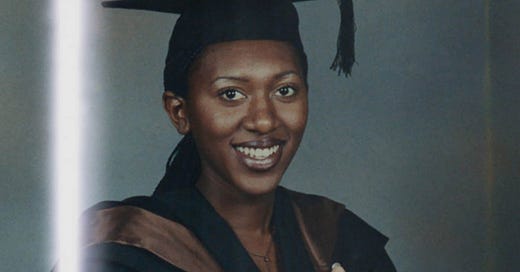Review: Outsourcing academia
Meet the Kenyan intellectuals quietly ghostwriting academic works for lazy students in the Global North.
Wilfred Okiche
Kenya is host to a thriving army – about 40,000 strong – of college graduates who work as academic writers. These “shadow scholars” are commissioned and paid by students in the most prestigious institutions in the western hemisphere to produce essays, papers, scholarly articles and graduate theses on their behalf. Worth around $7-billion, this shadow industry is built on the wide economic gulf that exists between wealthy nations and a developing country like Kenya.
The Shadow Scholars, by first-time feature director Eloïse King, dives full throttle into this underground world. It’s a compelling documentary that builds on the work of sociologist and Oxford University scholar Patricia Kingori.
Kingori, born in Kenya, is a rising star in academia and one of the world’s leading scholars on contract cheating. As narrator and subject, Kingori provides not just intellectual heft to the project, but also a fair-minded approach that is in lockstep with director King’s vision of shining a light on under-reported stories.
There are many ways that this story could have been sensationalised, with clear villains and victims. But The Shadow Scholars comes at this respectfully through the people involved, specifically the young Kenyans who labour in the trenches for their more privileged counterparts a world away.
For security reasons, the film disguises the identities of these essay writers while trying to break down their motivations. The film also insists on not reducing these Kenyans to the status of victims to be pitied.
Kingori’s scholarship is interested in teasing out how power dynamics shape the past, present and future of the global order. In this case, she is appalled by how easily the efforts of these young Kenyans are erased as they go uncredited for their intellectual output – an erasure with loud echoes in history.




